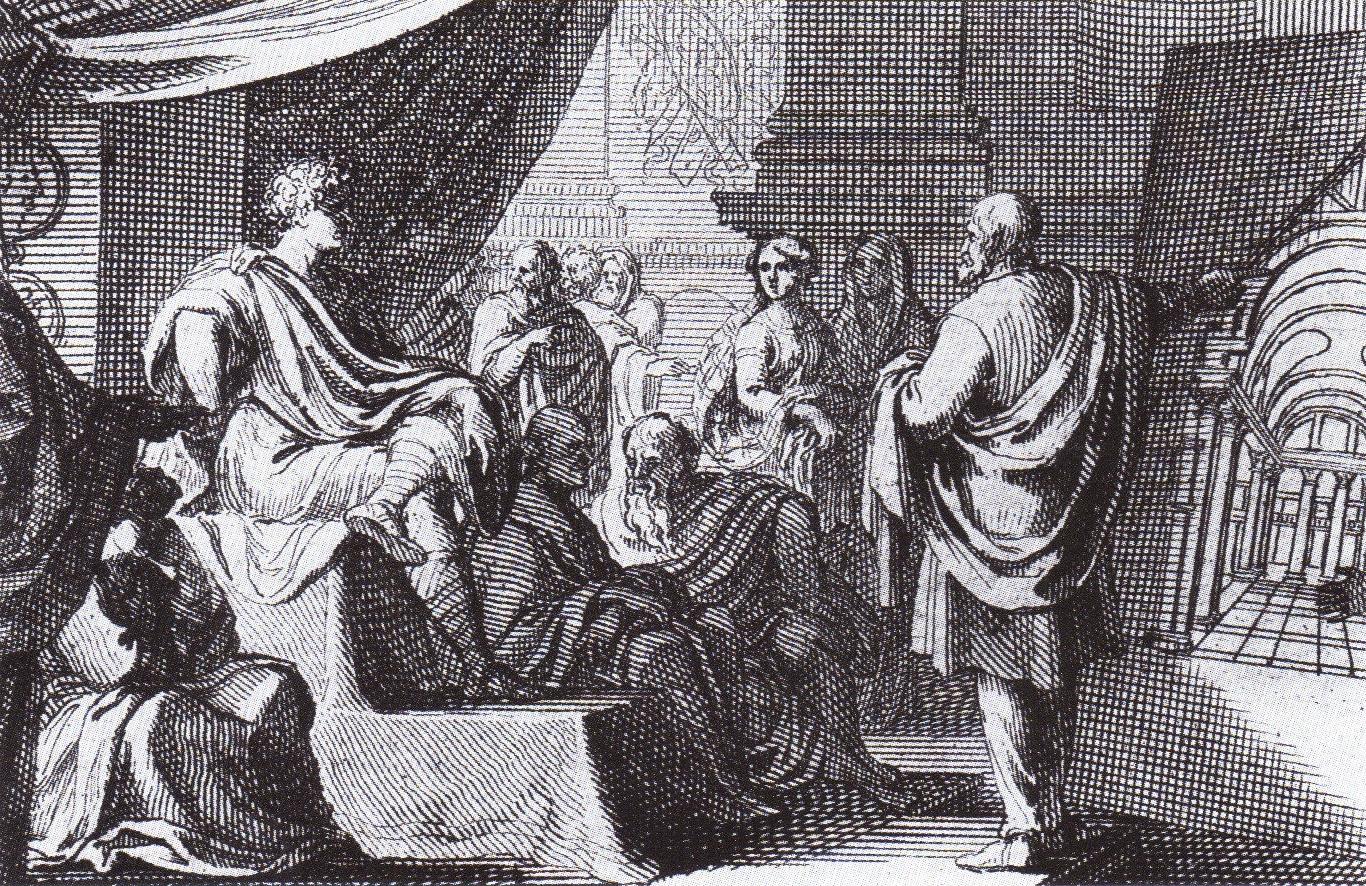“The proper form of economy must be observed in building houses for each and every class.”
Zdroj: De architectura (The Ten Books On Architecture) (~ 15BC), Book I, Chapter II, Sec. 9
Marcus Vitruvius Pollio bol starorímsky technik, architekt a autor diela De architectura , v ktorom sa dochovali cenné vedomosti o rímskom staviteľstve a technických objavoch.
Vitruvius pôsobil v Caesarovom vojsku ako veliteľ stavebných inžinierov a v mierovom období ako civilný architekt. Za vlády Augusta ho práve jeho rozsiahle skúsenosti v oblasti staviteľstva viedli k tomu, aby svoje poznatky spísal v desiatich knihách, ku ktorým boli priložené aj nákresy.
Vitruviov praenomen Marcus nie je doložený a ide iba o predpokladané meno. Tak isto ani jeho cognomen Pollio nie je istý. Objavuje sa síce pod týmto menom vo výťahu Cetia Faventina , ale tento úsek sa dá čítať dvojako: ako “Vitruvius Pollio a iní” alebo “Vitruvius, Pollio a iní”.
Wikipedia

“The proper form of economy must be observed in building houses for each and every class.”
Zdroj: De architectura (The Ten Books On Architecture) (~ 15BC), Book I, Chapter II, Sec. 9
Zdroj: De architectura (The Ten Books On Architecture) (~ 15BC), Book VII, Chapter III, Sec. 4
Zdroj: De architectura (The Ten Books On Architecture) (~ 15BC), Book I, Chapter II, Sec. 2
Zdroj: De architectura (The Ten Books On Architecture) (~ 15BC), Book I, Chapter I, Sec. 4
Introduction, Sec. 1
De architectura (The Ten Books On Architecture) (~ 15BC), Book IV
Zdroj: De architectura (The Ten Books On Architecture) (~ 15BC), Book II, Chapter VI, Sec. 4
Zdroj: De architectura (The Ten Books On Architecture) (~ 15BC), Book I, Chapter I, Sec. 10
Zdroj: De architectura (The Ten Books On Architecture) (~ 15BC), Book V, Chapter I, Sec. 6
Zdroj: De architectura (The Ten Books On Architecture) (~ 15BC), Book II, Chapter I, Sec. 2
Zdroj: De architectura (The Ten Books On Architecture) (~ 15BC), Book III, Chapter III, Sec. 11
Zdroj: De architectura (The Ten Books On Architecture) (~ 15BC), Book V, Chapter IV, Sec. 7
Zdroj: De architectura (The Ten Books On Architecture) (~ 15BC), Book I, Chapter VI, Sec. 5-7
Introduction, Sec. 14
De architectura (The Ten Books On Architecture) (~ 15BC), Book IX
Zdroj: De architectura (The Ten Books On Architecture) (~ 15BC), Book I, Chapter I, Sec. 8
Zdroj: De architectura (The Ten Books On Architecture) (~ 15BC), Book I, Chapter I, Sec. 4
Zdroj: De architectura (The Ten Books On Architecture) (~ 15BC), Book VI, Chapter VI, Sec. 1
Zdroj: De architectura (The Ten Books On Architecture) (~ 15BC), Book I, Chapter VII, Sec. 2
Zdroj: De architectura (The Ten Books On Architecture) (~ 15BC), Book III, Chapter III, Sec. 8
Zdroj: De architectura (The Ten Books On Architecture) (~ 15BC), Book VII, Chapter III, Sec. 24
Zdroj: De architectura (The Ten Books On Architecture) (~ 15BC), Book II, Chapter VIII, Sec. 19
Zdroj: De architectura (The Ten Books On Architecture) (~ 15BC), Book IV, Chapter IX, Sec. 1
Zdroj: De architectura (The Ten Books On Architecture) (~ 15BC), Book II, Chapter VI, Sec. 6
Zdroj: De architectura (The Ten Books On Architecture) (~ 15BC), Book VII, Chapter III, Sec. 17
“Next I must tell about the machine of Ctesibius, which raises water to a height.”
Zdroj: De architectura (The Ten Books On Architecture) (~ 15BC), Book X, Chapter VII, Sec. 1
Zdroj: De architectura (The Ten Books On Architecture) (~ 15BC), Book III, Chapter I, Sec. 3
Zdroj: De architectura (The Ten Books On Architecture) (~ 15BC), Book II, Chapter I, Sec. 5
Zdroj: De architectura (The Ten Books On Architecture) (~ 15BC), Book VI, Chapter VIII, Sec. 9
Zdroj: De architectura (The Ten Books On Architecture) (~ 15BC), Book V, Chapter V, Sec. 1
Zdroj: De architectura (The Ten Books On Architecture) (~ 15BC), Book V, Chapter IV, Sec. 8
Zdroj: De architectura (The Ten Books On Architecture) (~ 15BC), Book I, Chapter I, Sec. 10